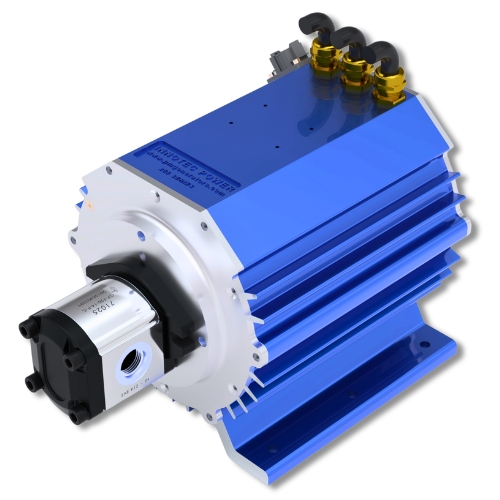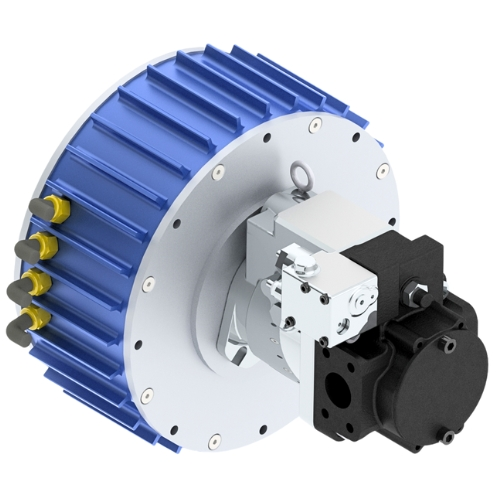The construction sector is perhaps the most stringent industry as far as equipment reliability and performance are concerned. One of the essential components in heavy equipment is hydraulic pumps. For powering these hydraulic systems efficiently, electric motors are now the favored option because they are efficient, long-lasting, and environmentally friendly.
Why Electric Motors are Suitable for Hydraulic Pumps
Electric motors are highly efficient, quiet in operation, and require low maintenance. Combined with hydraulic pumps, they provide maximum power output, providing stable and reliable performance for construction equipment such as excavators, loaders, and cranes. Some of the key reasons electric motors are well-suited for hydraulic pump use are:
High Torque and Power Efficiency: Electric motors offer high torque at different speeds, which is important for driving hydraulic pumps in heavy-duty operations. This makes equipment run smoothly even when heavily loaded.
Energy Efficiency: In contrast to conventional internal combustion engines, electric motors are more efficient in converting electrical energy to mechanical energy, thus saving on power consumption and operating expenses.
Lower Emissions: Electric motors emit no emissions, making them a green option. This is especially relevant in sustainable construction projects that focus on green practices.
Low Maintenance: Since electric motors have fewer moving parts and no fuel requirements, they need less maintenance, resulting in lower downtime and longer service life.
Compact Size and Flexibility: Electric motors tend to be more compact compared to their combustion engine counterparts, making them easier to integrate into different hydraulic systems without compromising performance.
Types of Electric Motors for Hydraulic Pump Applications
Depending on hydraulic pumps in construction equipment, the following types of electric motors are utilized:
PMAC Motors (Permanent Magnet AC Motors): PMAC motors have high power density and efficiency. They are commonly employed in hydraulic pump drives for heavy equipment because they offer higher torque and energy efficiency.
Induction MotorsInduction motors are durable and inexpensive, hence well-adapted for different industrial uses, such as hydraulic systems of construction equipment.
Brushless DC Motors: Brushless DC motors are very efficient and offer fine speed control, making them the best choice for precision applications on construction equipment.
Synchronous Motors: Synchronous motors have constant speed independent of load, which is advantageous in hydraulic pumps demanding steady and uniform performance.


Uses of Electric Motors in Construction
Electric motors power hydraulic pumps on different types of construction equipment, such as:
Excavators – Smooth control and precise movement of hydraulic arms.
Cranes – Consistent lifting ability with precise control.
Loaders – Optimum material movement with less energy usage.
Bulldozers – Strong hydraulic actuation for heavy-duty earthmoving operations.
Advantages of Utilizing Electric Motors as Hydraulic Pumps in Construction
Improved EfficiencyElectric motors provide more efficient rates than combustion engines, allowing maximum power transfer to hydraulic systems.
Cost ReductionLower maintenance expenses, lesser fuel usage, and improved durability help achieve cost savings.
Environmentally FriendlyThe zero-emission aspect of electric motors assists construction projects in achieving sustainability objectives.
Enhanced SafetyWith no emissions and reduced noise, electric motors provide a cleaner working environment.
Durability and Reliability Electric motors are designed to endure rough environments, thus being suitable for demanding construction sites.
Conclusion
Electric motors are revolutionizing hydraulic pump applications in the construction sector by providing unparalleled efficiency, dependability, and sustainability. Their capability to boost performance and cut down on environmental stress places them at the top of options for modern construction machinery. As the sector continues to look towards green solutions, the use of electric motors for hydraulic pumps will only increase even more.
